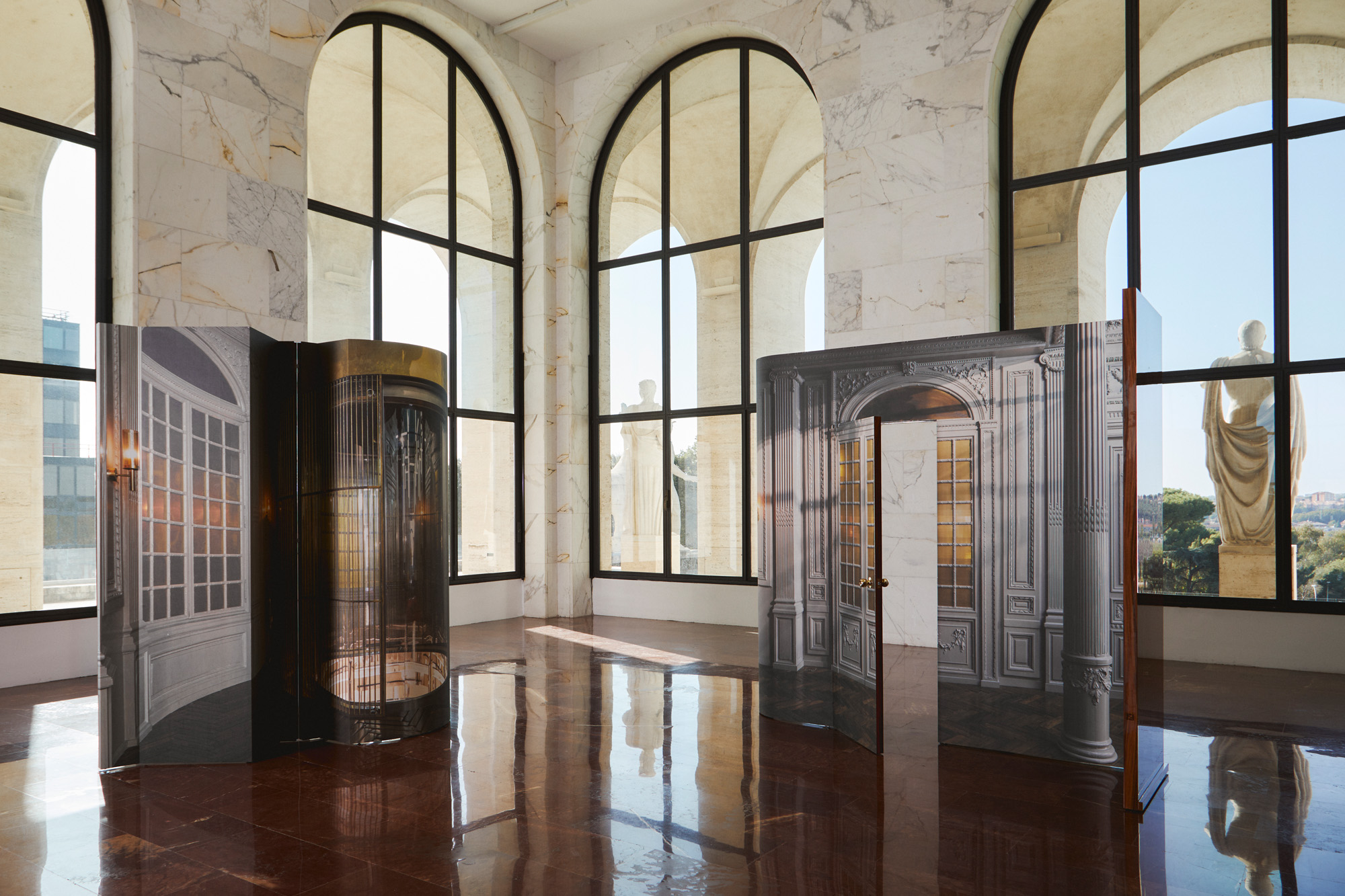
Designers Desiree Heiss and Ines Kaag pose lively provocations to a host of status quos. Working as Bless, which they founded in 1995, they unite all the creative disciplines into living sculptures, hybrid garments and large-scale installations. They release fashion products seasonally but offer them in perpetuity. They embellish the shock of early surrealist art, forcing us to relook at the world with a freshly pressed awe. In the pair’s principled eccentricity, Bless presents an ode to the bumpy, curious rhythm of creative practice.
In April 2022, the duo received an invitation to collaborate with Fendi on a project for Design Miami 2023. The email – from Simon Parris, who is part of Kim Jones Studio – was met with scepticism. ‘I immediately said “why us?”’ Kaag recalls. ‘But maybe because it was so abstract, and so not what we would have expected, we became hooked on finding out more.’ Parris had been intrigued by Bless since seeing its recycled fur wigs for Margiela in i-D magazine in the late 1990s. ‘My visibility of what Bless have been doing has always ebbed and flowed,’ he says. ‘I wasn’t sure what kind of response I would get, but I was excited by the fact that I wasn’t sure. That it wasn’t a done deal.’
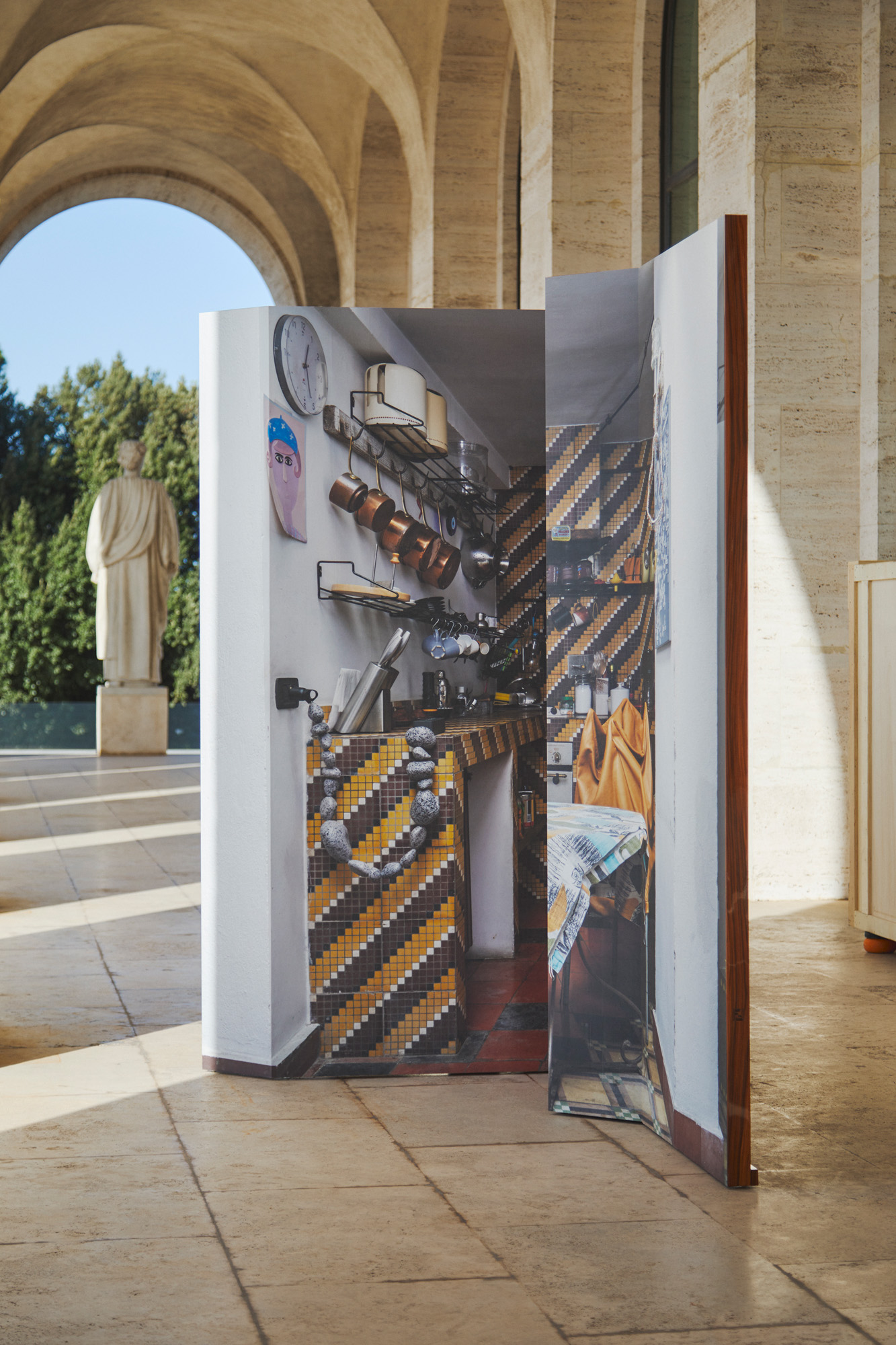
This spotlight-dodging is the exact kind of operating mode that Bless has skilfully orchestrated for itself. Both Heiss, who lives in Paris, and Kaag who is in Berlin, are unique in that they work on their own terms, with an intense commitment to the process. All their output is the final expression of many conversations, many questions, many debates. Parris was excited that his invitation was provocative for both parties. ‘We were not familiar with Fendi, apart from our on-the-surface understanding of a post-Karl Lagerfeld era,’ says Heiss. ‘We were totally disconnected. The fact that the brief was for Design Miami, which is another institution we’re not interested in necessarily, was also a challenge for us. We couldn’t see why we were being approached, but then we didn’t expect to feel the connections we did upon entering the Fendi world.’
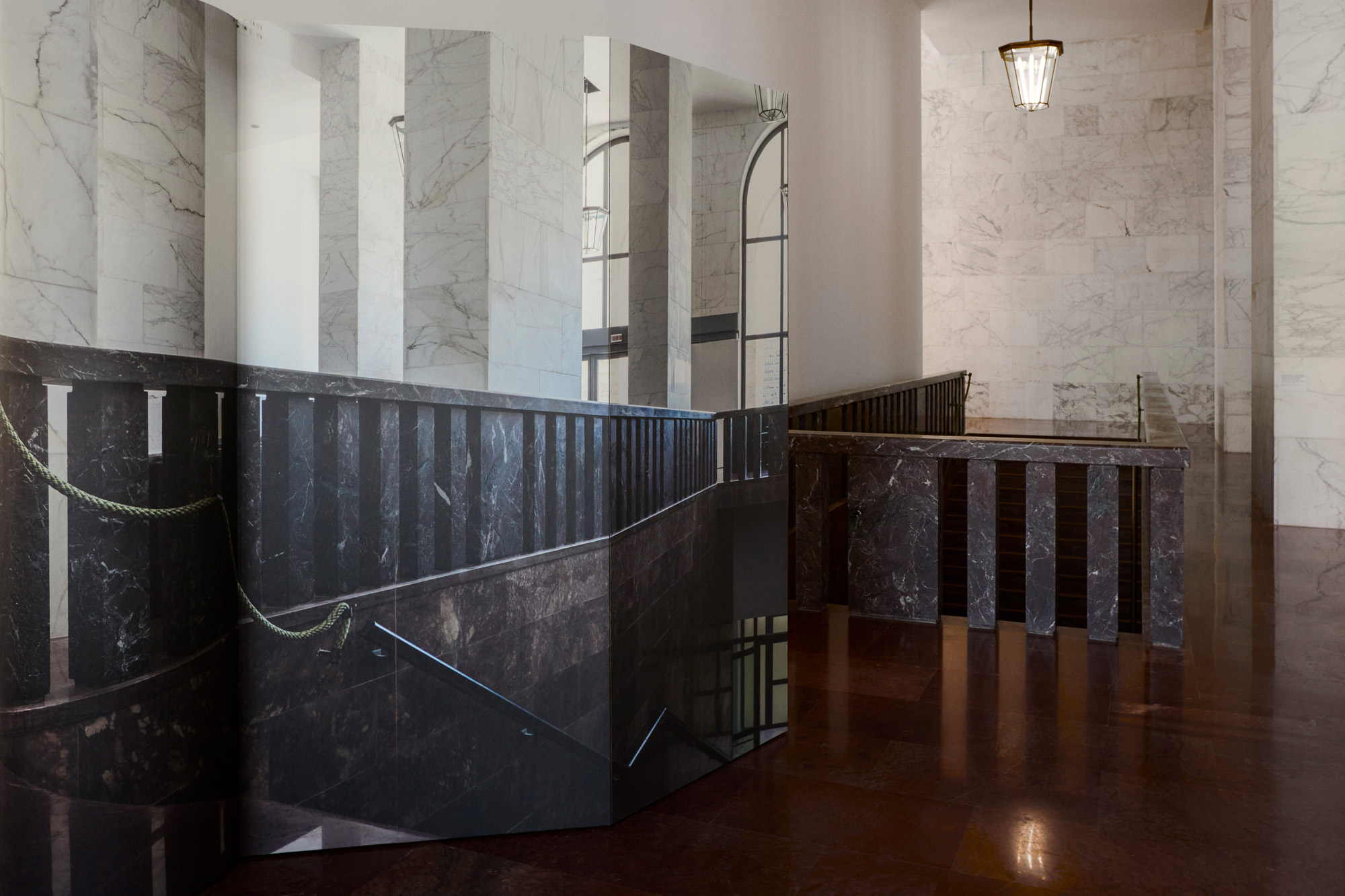
Blown away by the level of craftsmanship, care and community they encountered, Heiss and Kaag designed a process that would help them to gain insight into the more private aspects of the brand. They requested time with employees across the whole company, from the administration departments all the way to the atelier. ‘We fell in love with this structure, with all the women we met and this female, family power we could feel,’ Kaag says. ‘We felt that there was something in this strength that we would wish for Bless.’ From that moment, they started to develop a language together.
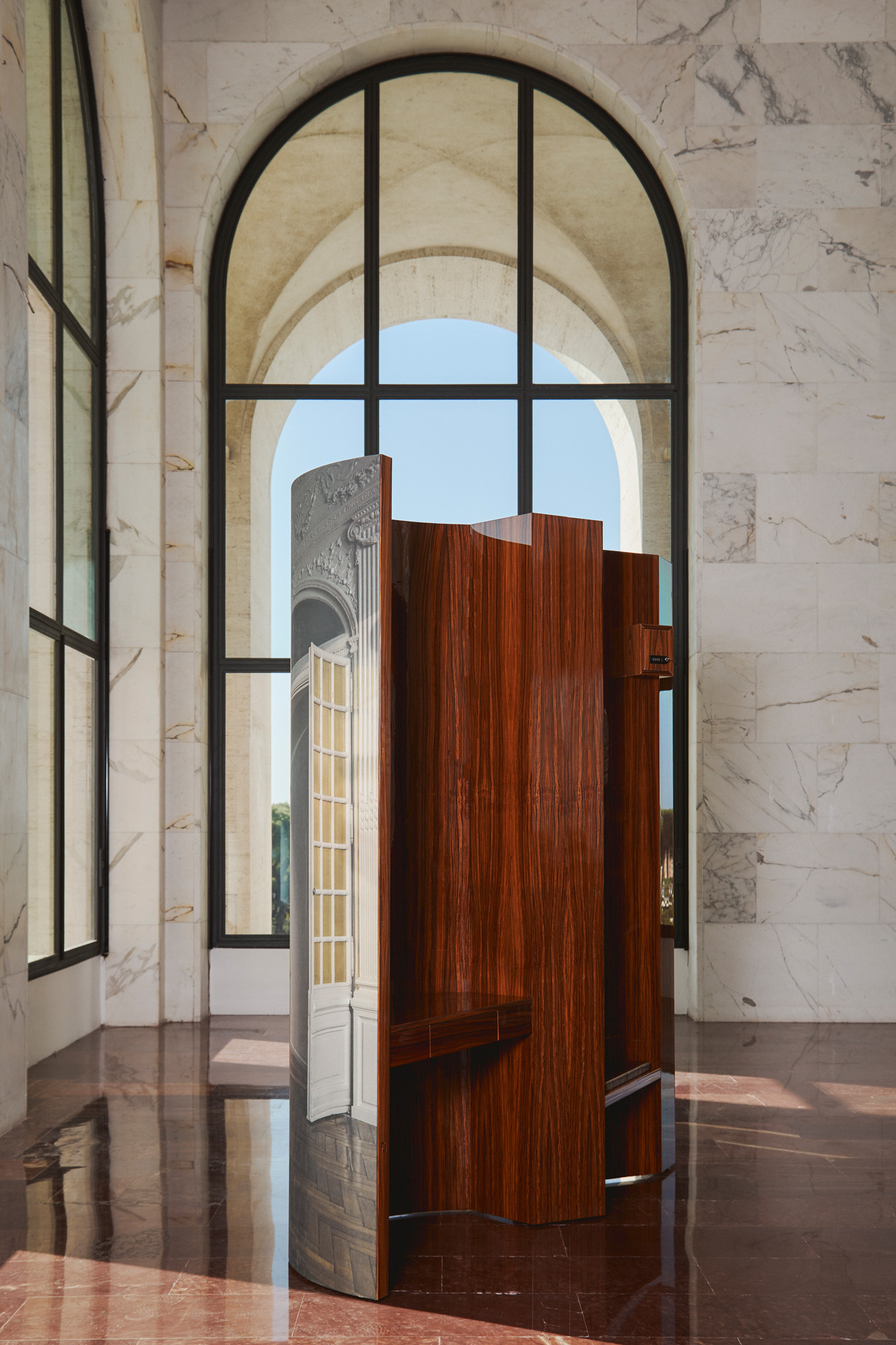
The outcome is ‘Backfrontal’, which consists of four double-sided screens, fabricated by Fendi Casa, and features scenery at the front and alcoves at the back. ‘We wanted to create this back-side corridor, lined with very elaborate, practical things like furniture by Fendi Casa and other storage elements. This is actually the side full of richness,’ says Kaag. The space features a 1.4m intarsia blanket made of shearling, printed calf and lamb leather, and Merino wool, artfully combined to replicate an image of the unglamorous, functional basement of Fendi’s headquarters in Rome.
Elsewhere, recycled pieces of fur appear on broom handles and bottles of detergent. The front sides show lifesized wallscapes of Fendi environments that Heiss and Kaag navigated when they visited the brand in Rome, including the handsome marble entrance of its Palazzo della Civiltà Italiana HQ, the kitchen in the home of a Fendi family member, and the private showroom atop the label’s flagship boutique.
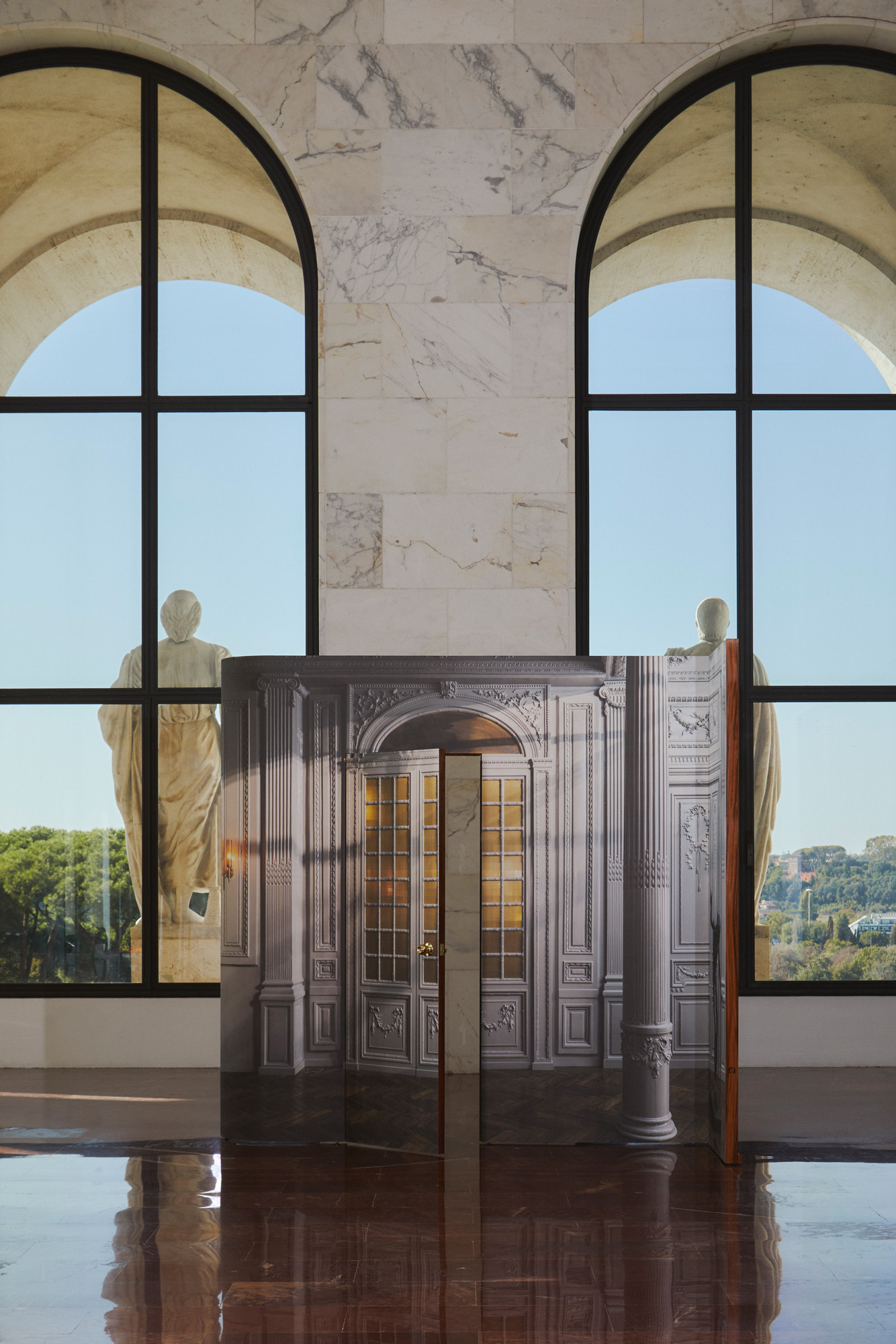
Throughout their research, Heiss and Kaag were energised by the atmosphere of possibility. ‘Each and every encounter, no matter if it was a young person, or someone who had worked for Fendi for many, many years, was pure pleasure,’ says Heiss. ‘It was not just a stupid 15-minute chat, we came out of these encounters totally mesmerised. What fascinated us most about Fendi is the complexity of a former family company that has kept its spirit and magic after having joined a big group. All of its operations are anchored in an Italian way of being.’
Ever since its first involvement in Design Miami in 2008, Fendi has invited an outsider view of the brand that always, inevitably, enriches it. ‘We appreciate creativity, and like to show the human touch in it,’ says Silvia Venturini Fendi, the brand’s current creative director and a third generation member of the Fendi dynasty. ‘Design – with considerations on functionality, durability and endurance – is the closest form of art to what I do. It’s increasingly important to engage in conversation with talents who can contribute to the evolution of the Fendi aesthetics beyond commercial boundaries.’
Parris adds: ‘We’re in cycles ourselves and things tend to be quite predictable. Often, we know what the result of a collaboration is going to be. But here, the conversation and the process became so important. It was the actual project.’
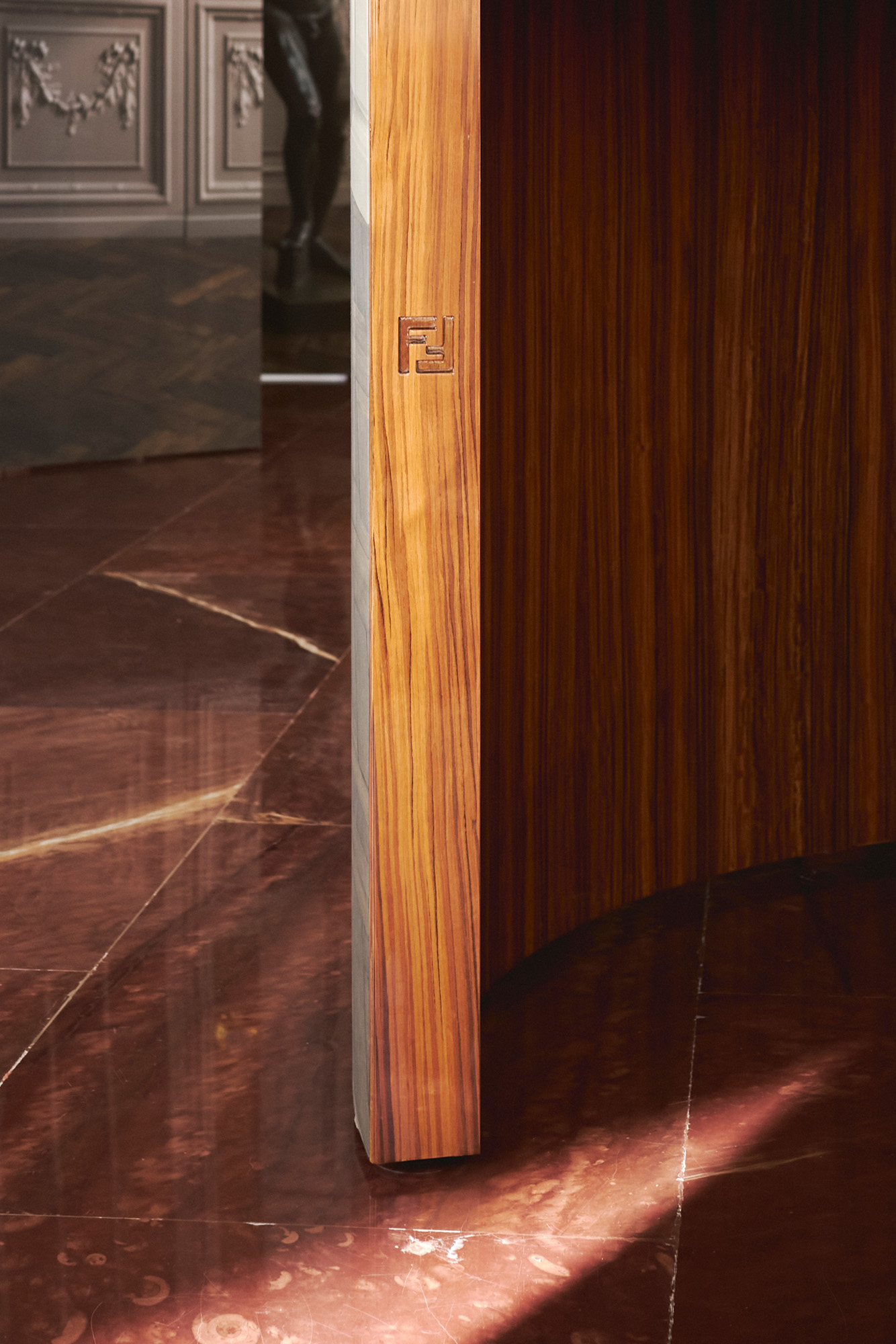
With its lush corridors and textural theatrics, ‘Backfrontal’ is part mercantile sculpture, part philosophical paean to the value of creative work. It’s a reminder that, despite the unread emails, the endless calendar invites, the infinite meetings and the increasing instability of the world, creative collaboration ought to be more than just a rush to the finish line. ‘We were astonished that Fendi opened the door wide. Why should they do that with people like us?’ says Heiss. ‘We’ve never experienced this level of trust with strangers before and it was very touching. And very intense.’
‘Backfrontal’ will be on show at Design Miami from 6-10 December 2023
Convention Center Drive & 19th Street
Miami Beach
A version of this story appears in the December 2023 Entertaining Issue of Wallpaper*, available in print, on the Wallpaper* app on Apple iOS, and to subscribers of Apple News +. Subscribe to Wallpaper* today!







